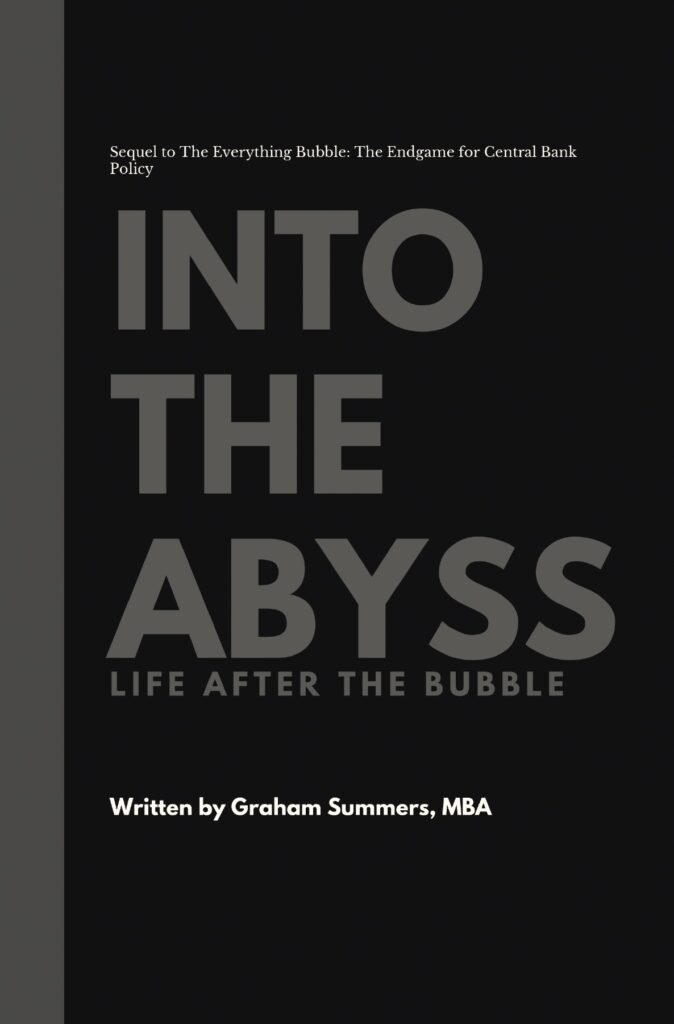THE ONLY REPORT INVESTORS NEED TO KNOW WHEN TO GET OUT OF STOCKS
LISTEN TO OUR PODCAST.
GRAHAM'S NEW BOOK WAS THE #1 NEW RELEASE IN FOUR CATEGORIES ON AMAZON
HOT TOPICS.
- 2008
- bail-ins
- bear market
- Bernanke
- big banks
- bond bubble
- bonds
- BOVESPA
- Carry Tax
- cash ban
- central banks
- China
- collapse
- contraction
- crash
- crisis
- debt
- debt crisis
- debt implosion
- deflation
- Derivatives
- economic collapse
- Federal Reserve
- inflation
- interest rates
- investing
- Jp MOrgan
- meltdown
- NIRP
- Operation Twist
- PboC
- Private wealth
- QE
- recession
- S&P 500
- slowdown
- stock market crash
- stocks
- TBTFs
- the Fed
- the market
- US Dollar
- War on cash
- Yellen
- ZIRP
Tag Archives: Carry Tax
The War on Cash is Real
Stocks have rallied over the last 10 days in part by ECB President Mario Draghi’s statement that if push comes to shove, the ECB will push interest rates even further into negative territory (NIRP). This represents just another round in … Continue reading
Posted in It's a Bull Market
Tagged Carry Tax, cash ban, central banks, NIRP, War on cash, ZIRP
Comments Off on The War on Cash is Real
Are Border and Capital Controls Coming to the US?
More and more analysts are beginning to take note of the “War on Cash.” However, they’re missing the fact that the actual template for what’s coming to the US first appeared in Europe back in 2012. Back in March of … Continue reading
Posted in It's a Bull Market
Tagged bail-ins, Carry Tax, Cyprus, How, NIRP, War on cash, ZIRP
Comments Off on Are Border and Capital Controls Coming to the US?
Prepare to be Taxed: Wealth Tax and Carry Taxes Are Coming
Prepare to be taxed. Behind the veneer of “all is well” being promoted by both world Governments and the Mainstream Media, the political elite have begun implementing legislation that will permit them to freeze accounts and use your savings to … Continue reading
Posted in It's a Bull Market
Tagged Carry Tax, NIRP, War on cash, wealth tax, ZIRP
Comments Off on Prepare to be Taxed: Wealth Tax and Carry Taxes Are Coming
Banks Are Now Openly Rejecting Deposits… Is a Cash Ban Next?
The Central Banks hate physical cash. So much so they there will likely try to ban it in the near future. You see, almost all of the “wealth” in the financial system is digital in nature. The total currency (actual … Continue reading
Posted in It's a Bull Market
Tagged big banks, Carry Tax, cash ban, Jp MOrgan, NIRP, War on cash
Comments Off on Banks Are Now Openly Rejecting Deposits… Is a Cash Ban Next?
Could the Fed Implement a “Carry” Tax on Physical Cash?
The Fed meets this week on Wednesday and Thursday. Many in the investment world believe the Fed will finally raise interest rates during this meeting. If it does, this will be the first rate hike since 2006. And it will … Continue reading
Posted in It's a Bull Market
Tagged Carry Tax, physical cash, the Fed, US Dollar, War on cash
Comments Off on Could the Fed Implement a “Carry” Tax on Physical Cash?




